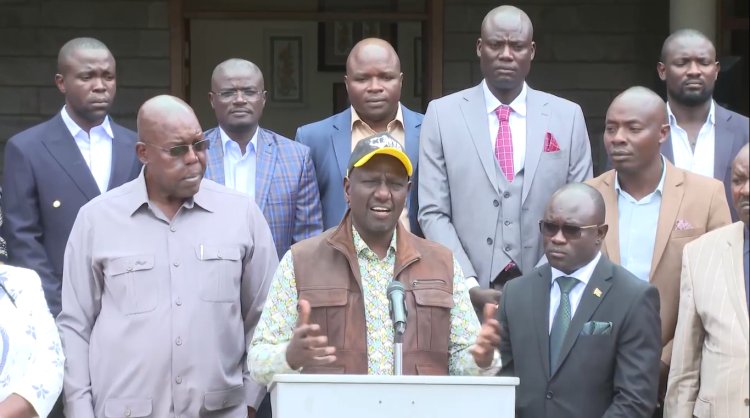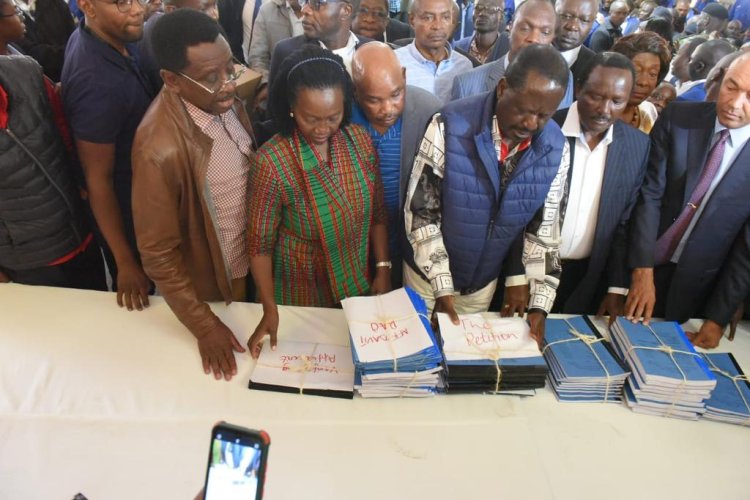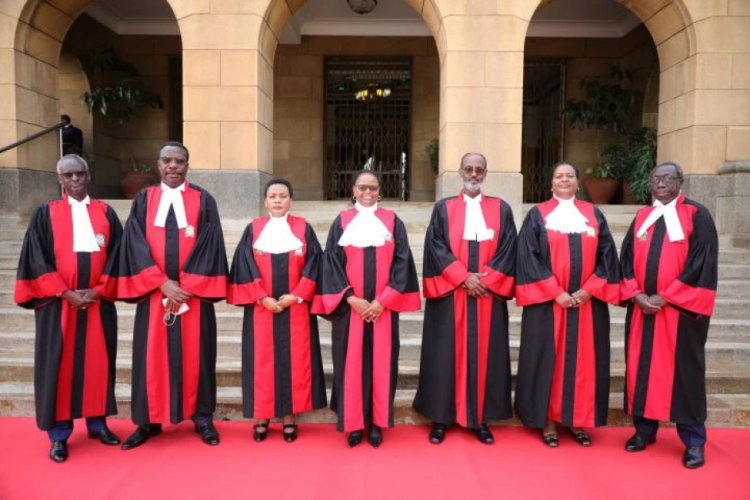Supreme Court Throws Out Ruto's Requests In Presidential Petition
The apex court dismissed Ruto's bid to have the Law Society of Kenya (LSK) removed from the petition ahead of the pre-trial on Tuesday, August 30.

The Supreme Court has rejected President-elect William Ruto's two applications in petitions seeking to invalidate his victory in the August 9 elections.
The apex court dismissed Ruto's bid to have the Law Society of Kenya (LSK) removed from the petition ahead of the pre-trial on Tuesday, August 30.
In a new affidavit filed by Ruto's lawyer, Abraham Kithure Kindiki, the president-elect had wanted the lawyers' lobby struck out of the petition because Martha Karua is its member and also a former leader and therefore cannot be neutral.
“The applicant has misrepresented material facts by pleading that the LSK has no connection to any party in this matter, which is FALSE, as the LSK is connected to Karua,” Ruto’s affidavit read in part.

Raila Odinga presents his petition documents at Milimani Law Courts. /TWITTER
“The rules of natural justice forbid the grant of the Application to the extent that the Karua is a prominent member and past leader of the applicant, which strips the Applicant requirement of independence and impartiality."
Ruto further argued that by allowing the LSK to join the case as an amicus curiae (friend of the court), the court would risk breaking the rules of the friends of the court.
He also argued that not only does the addition of LSK obscure the matter more than clarify, but it would also add little value to the outcome of the court.
“The society wants to be joined as a neutral party because of the public interest involved in the dispute surrounding the presidential election,” the society said in the application filed by Kililo Advocates while seeking to join in challenging the declaration of Ruto as president-elect.
Ruto also called for the Independent Electoral and Boundaries Commission (IEBC) commissioners to be removed as respondents in the case, including vice-chair Juliana Cherera.
The other commissioners who were named as respondents in the Raila petition include Abdi Guliye, Boya Molu, Justus Nyang'aya, Francis Wanderi and Irene Masit.
The call for their removal stemmed from the fact that they were named as individuals instead of the whole commission, which was mandated to handle the elections.
However, the apex court threw out his application after the coalition challenged the affidavits filed by the four breakaway commissioners, meaning that their affidavits would be inadmissible.
In the affidavits, the four commissioners, Cherera, Masit, Wanderi and Nyang'aya argued that the elections were not transparent and that chairperson Wafula Chebukati sidelined them and announced the presidential results without verifying some results.
Chebukati however defended by stating that the IEBC conducted the presidential elections in a fair and credible manner and that he accused some top government officials of trying to make him subvert the will of the people.
Commissioner Guliye also backed up his sentiments, revealing that the IEBC chair was visited at 3 AM by former Jubilee Party Secretary General Raphael Tuju and Amos Wako.
Tuju confessed to meeting Chebukati at Bomas but denied influencing the outcome of the polls and vowed to release CCTV footage of a meeting with a section of the commissioners in his house.
The Supreme Court also threw out applications by the Agano Party led by Waihiga Mwaure to be enjoined in the petition as well as a petition by Former Gatundu South MP Moses Kuria which sought to have Raila's petition dismissed over chaos witnessed at Bomas of Kenya on Monday, August 15.

Supreme Court judges set to hear presidential election petitions. /CITIZEN DIGITAL

 admin
admin 




